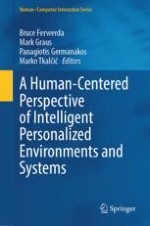2024 | OriginalPaper | Buchkapitel
Coarse-Grained Detection for Personalized Online Learning Interventions
verfasst von : Michael J. Lee
Erschienen in: A Human-Centered Perspective of Intelligent Personalized Environments and Systems
Verlag: Springer Nature Switzerland
Aktivieren Sie unsere intelligente Suche, um passende Fachinhalte oder Patente zu finden.
Wählen Sie Textabschnitte aus um mit Künstlicher Intelligenz passenden Patente zu finden. powered by
Markieren Sie Textabschnitte, um KI-gestützt weitere passende Inhalte zu finden. powered by
